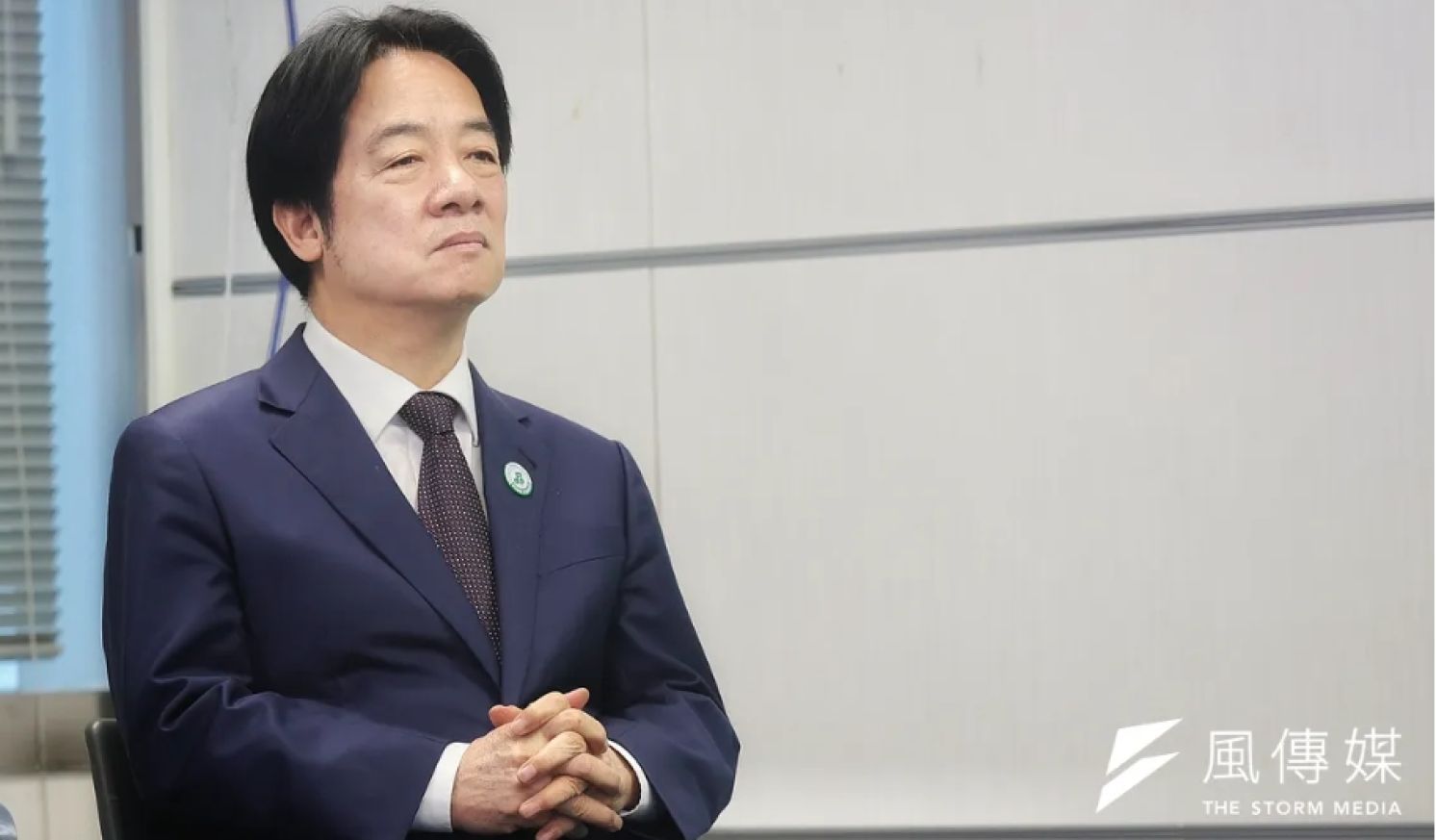
Washington Inadvertently Encouraged Lai Administration's Aggressive Stance
The Storm Media Commentary, October 30, 2025
Washington think tanks have recently turned unfavorable toward Taiwan. TIME magazine described President Lai Ching-te as “reckless,” while Foreign Affairs published an article reviewing how President Lai’s “anti-China” rhetoric since taking office has heightened cross-strait tensions. Yet the piece that struck Taiwan’s public sentiment most deeply was The Economist’s “What Is Taiwan’s Plan B?”, a reality that may be the last thing the Lai administration or the Democratic Progressive Party (DPP) wishes to confront.
When Plan B is mentioned, it means Plan A has failed. As for why Plan A is no longer viable, The Economist states it plainly: “If the United States abandons Taiwan.” Of course, this assumption deserves a large question mark. Although “abandon-Taiwan theory” has surfaced in Washington, such a move would represent a major strategic shift. Even U.S. President Donald Trump—often viewed as a transactional leader—maintained a posture of strategic ambiguity toward Taiwan’s defense. Still, when media outlets begin discussing the possibility of “abandoning Taiwan,” it signals that the idea is no longer confined to a small circle in Washington but is something businesses and the broader public are beginning to calculate.
Why has Taiwan’s Plan A reached an impasse? Ironically, after experiencing the “best era” of U.S.-Taiwan relations under former President Tsai Ing-wen, President Lai has, like former President Chen Shui-bian, once again become a “troublemaker” in the eyes of the United States. The growing foreign-media focus on President Lai’s role makes this clear. Yet although both presidents Lai and Chen were labeled “troublemakers,” there are crucial differences between them. In his later years, former President Chen abolished the National Unification Council and pushed for defensive and United Nations membership referendums—moves both Beijing and Washington saw as election-driven provocations. The administration of President George W. Bush in the United States feared Taiwan’s actions would provoke China and undermine U.S.-China counterterrorism cooperation at the UN, repeatedly warning Chen through multiple channels. At that time, former President Chen was viewed by Washington as an unstable, troublesome figure—but the messages that the United States sent Taiwan were unmistakably clear, leaving the Chen administration with almost no room to maneuver.
By contrast, as Washington think tanks now accuse Lai of risking dragging the United States into a cross-strait war, U.S. policy toward Taiwan appears disordered. In February 2025, the Department of State updated its website, removing the phrase “does not support Taiwan independence.” Although the spokesperson later reaffirmed adherence to the One-China policy, this revision was nonetheless an encouragement to Lai’s pro-independence administration. Soon after, in mid-September, the American Institute in Taiwan (AIT) responded to media inquiries by proactively reiterating the “Taiwan’s status undetermined” position—the same legal argument once used by overseas pro-independence groups. Now, with AIT and even the State Department appearing to endorse it, the DPP’s excitement was palpable. Minister of Foreign Affairs Lin Chia-lung publicly expressed gratitude, and DPP Secretary-General Hsu Kuo-yung immediately extrapolated: since in 1945 General Douglas MacArthur, Supreme Commander of the Allied Forces, had ordered Chiang Kai-shek to accept Japan’s surrender in Taiwan on behalf of the Allies, Taiwan was not “returned” to the Republic of China—therefore, “there is no such thing as Taiwan’s Retrocession Day.”
The Lai administration’s “adventurism” is, in some sense, a response to Washington’s hints and temptations. Yet it is Washington’s think tanks that now turn around to criticize Lai as “reckless,” accusing him of dragging America into trouble. This is an injustice toward Lai’s government—a betrayal that is hardly unique. For example, Taiwan’s alignment with U.S. decoupling policies led to a huge trade surplus with America, prompting high tariffs. Likewise, despite meeting American demands to raise its defense budget, Taiwan now has NT$660 billion (about US$21.4 billion) in prepaid but undelivered arms. In fact, even though Washington insists Taiwan’s defense spending should reach at least 5 percent of GDP, the Trump administration has yet to approve any new arms sales to Taiwan.
The core reason Washington can act so arbitrarily toward Taipei is that Taiwan has only a Plan A. When the DPP was in opposition, its members used to joke privately that “hugging America’s thigh” was the only strategy. That approach indeed served the DPP’s electoral interests—but not necessarily Taiwan’s interest in risk diversification. Today, as the DPP administration clings ever tighter to Washington, it is beginning to feel the pain. Their absolute faith in the United States—without question or doubt—has left them blindsided by an irony they never foresaw: that one day they themselves would become the victims of an incompetent and unreliable partner.